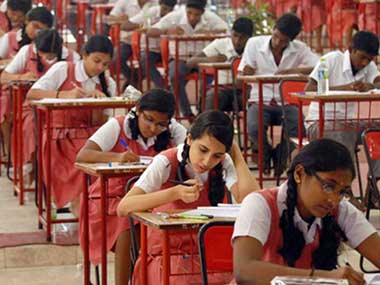As published in FirstPost on 30/07/2017.
“The greatest trick the devil ever pulled was convincing the world he didn’t exist.” — Kevin Spacey, The Usual Suspects
In part one of this essay, I mentioned how I quit my job selling chai in Bengaluru to unravel the grand story of what could be called India’s fifth most populous religion: Engineering. In this concluding part, I tell you about my biggest finding: India’s deadliest terrorist organisation that has deviously missed the attention of every government over the years.
In the last four years, a combined total of 1,524 civilians and security force personnel have lost their lives to terror related activities at an average of roughly one fatality per day. What if I told you, there is an organisation that has been responsible for killing 20 unsuspecting teenagers out of sheer terror every day and is not even a recognised terror outfit? Let me acquaint you with the calamity that is the Indian education system.
In the last four years, a combined total of 1,524 civilians and security force personnel have lost their lives to terror related activities at an average of roughly one fatality per day. What if I told you, there is an organisation that has been responsible for killing 20 unsuspecting teenagers out of sheer terror every day and is not even a recognised terror outfit?
The country that takes pride in its sophisticated ancient civilisation is today perhaps the biggest human resource tragedy on planet. A student commits suicide every hour mostly due to academic pressure. Twenty-five percent of public school teachers are absent on any given day and among those present, only half indulge in teaching related activities. Half of our Class V kids can’t read or write text from Class II. These kids will grow up to vote or worse, contest elections. A natural question to invoke is, how do we fix this? The answer is simple: There is no fix or at least we are a decade or two late in trying to fix this mess. To understand the rationale behind this seemingly bizarre assertion, let us allow Sugata Mitra, the winner of TED prize in 2013, to explain the origin of our schools.
“The schooling system as it is today goes back to 400 years of an empire’s colonisation and this empire needed three kinds of people: Soldiers to protect their land interest, clerks to run their offices and, after the industrial revolution, assembly line workers to make things. So for 400 years we produced millions and millions of people like them and what are the properties of those people? They should be able to understand instructions, follow them and most importantly, they should not ask questions and they should not be creative. Imagine if an assembly line worker started being creative!
To produce millions of such people, what the empire basically needed was a system that kind of worked like a factory. You take raw materials, subject all of them to exactly the same processes and conditions and finally test them. The finished products that clear the test are ready to be sold and the remaining products are simply passed off as defects. The empire managed to build such a system and a very efficient one that: The schooling system.”
So, if you belong to “Batch 2011” or "Batch 1985” depending on when you graduated, you are only acknowledging that you are a proud factory product.
You can only fix something that is broken. Our education system is not only broken but also obsolete. There is no point fixing it. We need to re-imagine an entirely new system. Let me tell you why. As we lose our collective mind over chat show gossip in India, in the not-so-secret corridors of the world, Artificial Intelligence is slowly preparing to render humans useless by taking away our jobs. It’s being called the Fourth Industrial Revolution and Professor Klaus Schwab of the World Economic Forum thinks “it could be a time of greater promise or greater peril”. What may sound like a dystopian science fiction future, in fact has its grips firm in today’s reality.
Look at your own life. Web or app based algorithms have replaced traditional matchmaking aunts to help you custom find a partner (my favourite matrimony portal is one which is solely dedicated to graduates of IITs and IIMs to help hook up their tribe). Some thinkers of the west believe that with no jobs, only drugs and video games can keep humans happy in the future. Now, why should we Indians worry about something that clearly comes across a first world problem, right? Can’t we go back to dealing with pressing issues like a stand-up comedian’s Snapchat story? The World Bank chief cautions otherwise and reckons automation is likely to wipe off 2/3rd of all jobs in developing countries. India particularly stands to lose 68 percent of her jobs. In its 36th annual general meeting, IT giantInfosys admitted to ‘releasing’ 11,000 jobs due to automation.
Humans have a compulsive urge to add meaning to life when there is possibly none. The current meaning we’ve added to our lives is to get up in the morning, go to work, contribute to the economy, pay bills, and eventually die. In a wicked joke, robots are going to render this meaning obsolete. Half of India is below 25 years of age. That’s 600 million people with raging hormones who stand a risk of getting up every morning and having nothing to do: with or without a degree. If you are a young Indian reading this, I want you to sleep very scared tonight and have nightmares of robots. If you are willing to rise, what is today a deadly terrorist outfit can be transformed into an army to combat the rise of machines.


